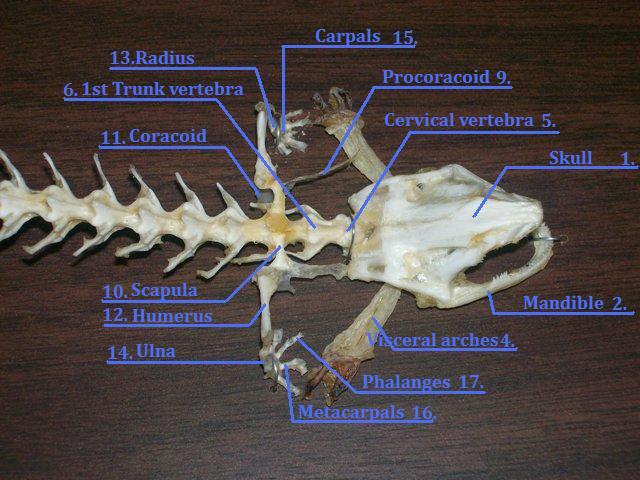
2. Mandible- formed from the splanchnocranium and composed mostly of the large dentary bone; articulates with the upper jaw by Meckelís cartilage.
4. Visceral Arches- a series of gill bearing bones.
5. Cervical vertebra- articulates with the occipital condyles of the skull and with the first of the long series of trunk vertebrae.
6. Trunk vertebra (lateral and anterior)- works together with the rectus abdominis muscle to support the viscera.
9. Precoracoid- present as an element of the coracoids in Necturus and some other Amphibia, and as a separate bone in many Reptilia.
10. Scapula- a short bone that dorsally bears the suprascapular cartilage; the only ossified part of the pectoral girdle; lies dorsal to the glenoid fossa.
11. Coracoid- forms a flat plate of cartilage over the ventral part of the pectoral girdle.
12. Humerus- composed of cartilage on either end and a bony shaft.
13. Radius- anteromedial bone of the forearm.
14. Ulna- posterolateral bone of the forearm.
15. Carpals- composed of six or seven cartilages in three rows.
16. Metacarpals- the most proximal segment of each digit in the forearm.
17. Phalanges- the most distally located bones in the forearms and hind limbs; there are four on each forearm and hind limb in the Necturus.